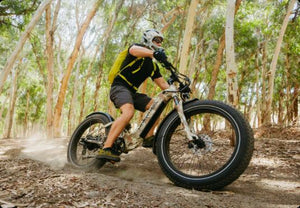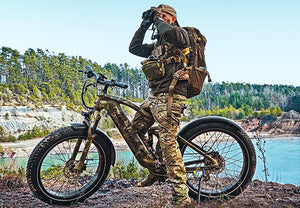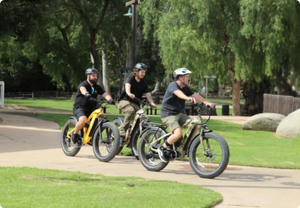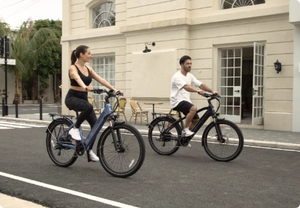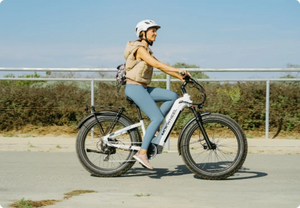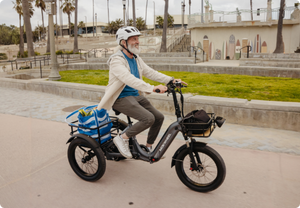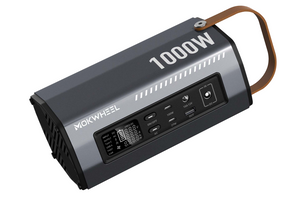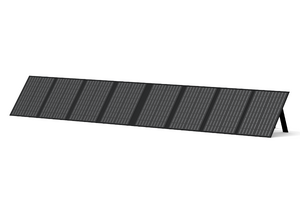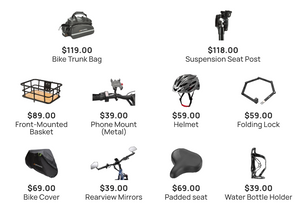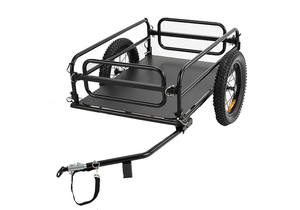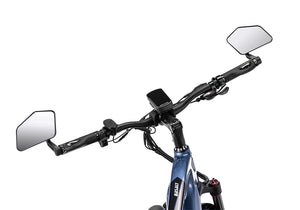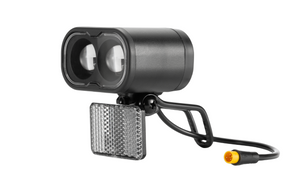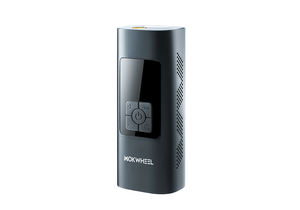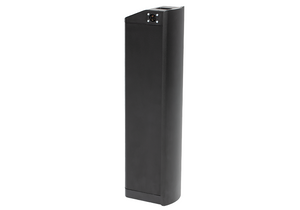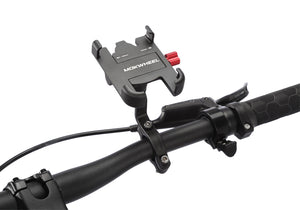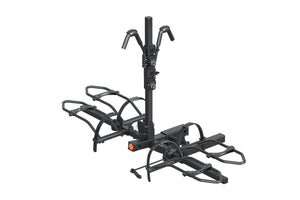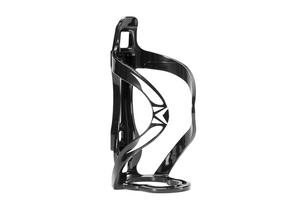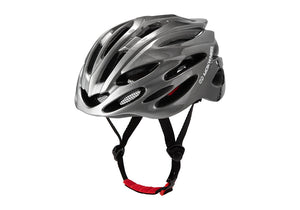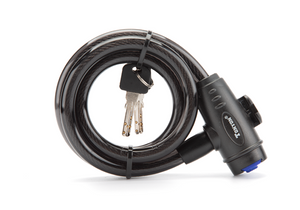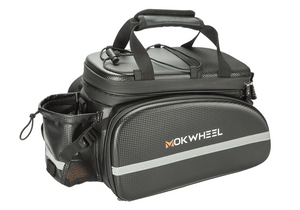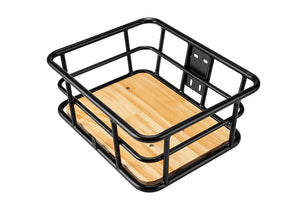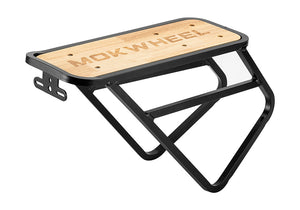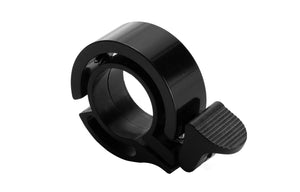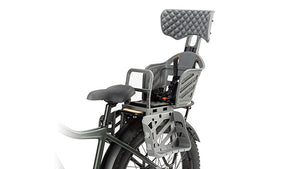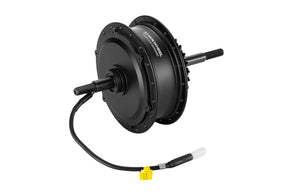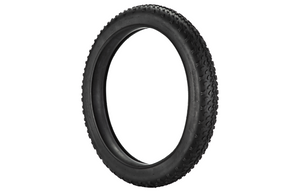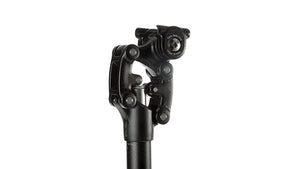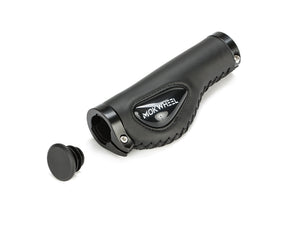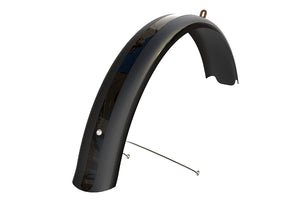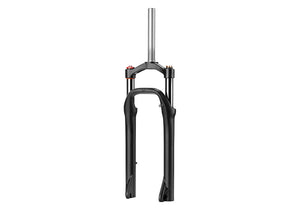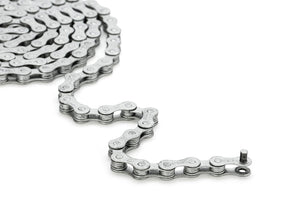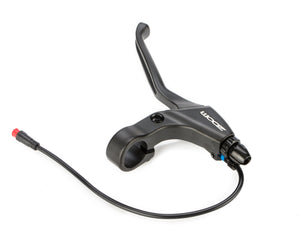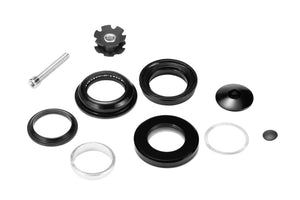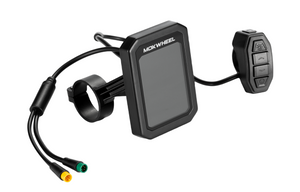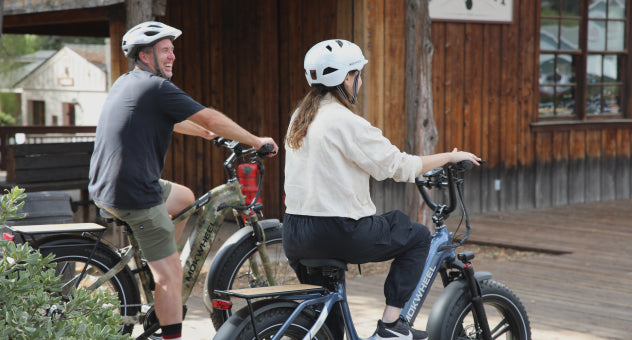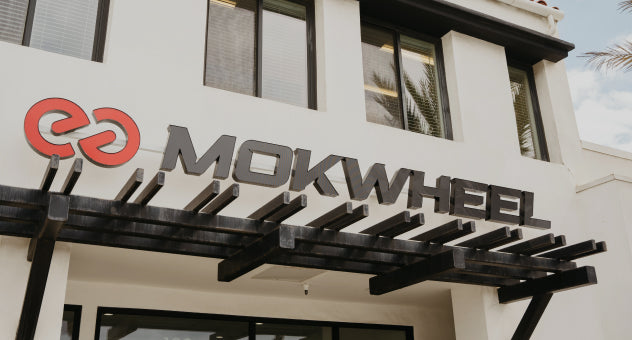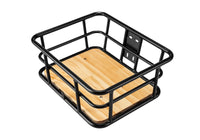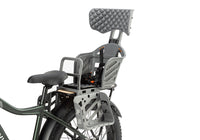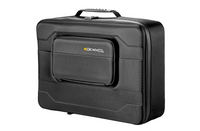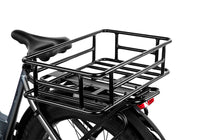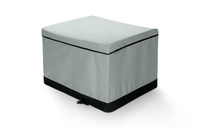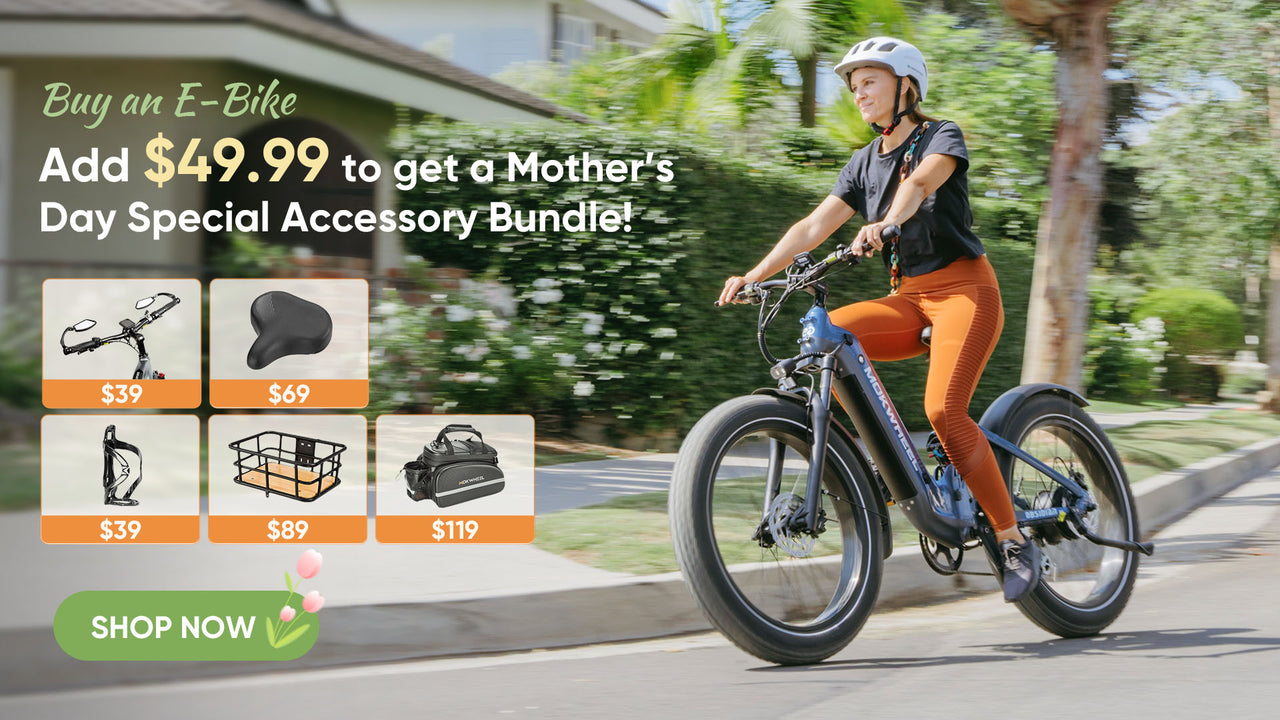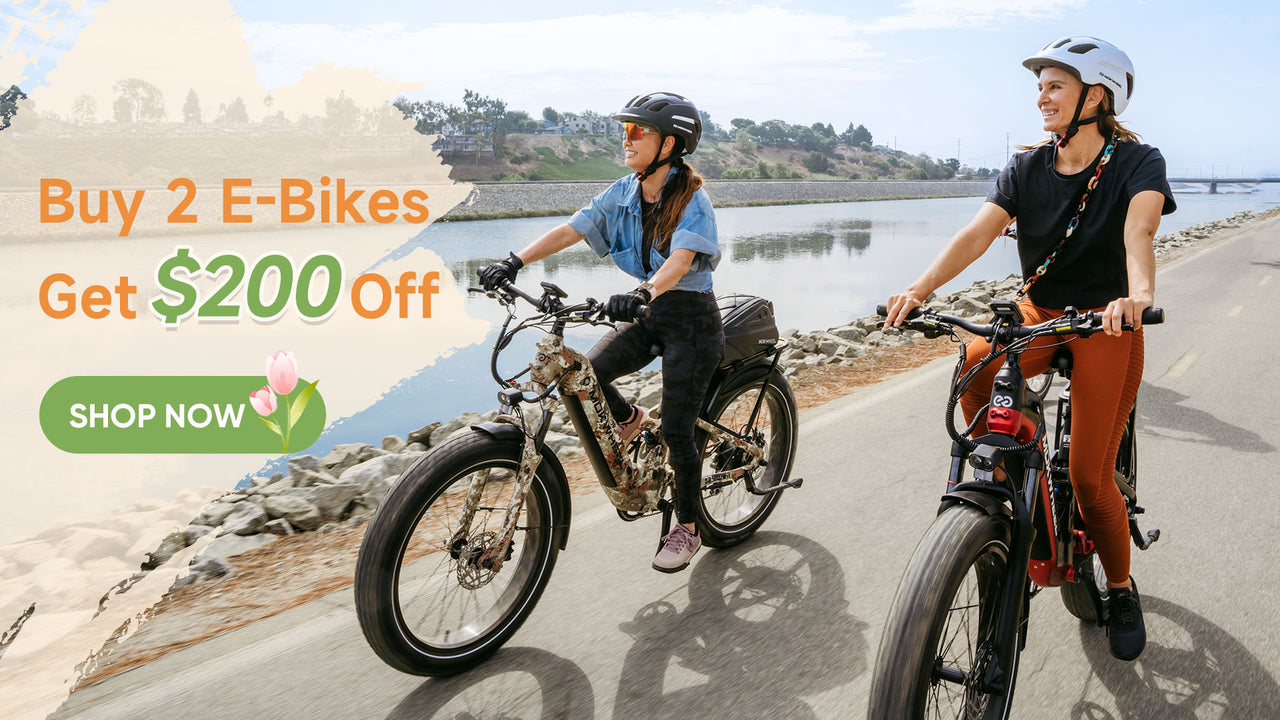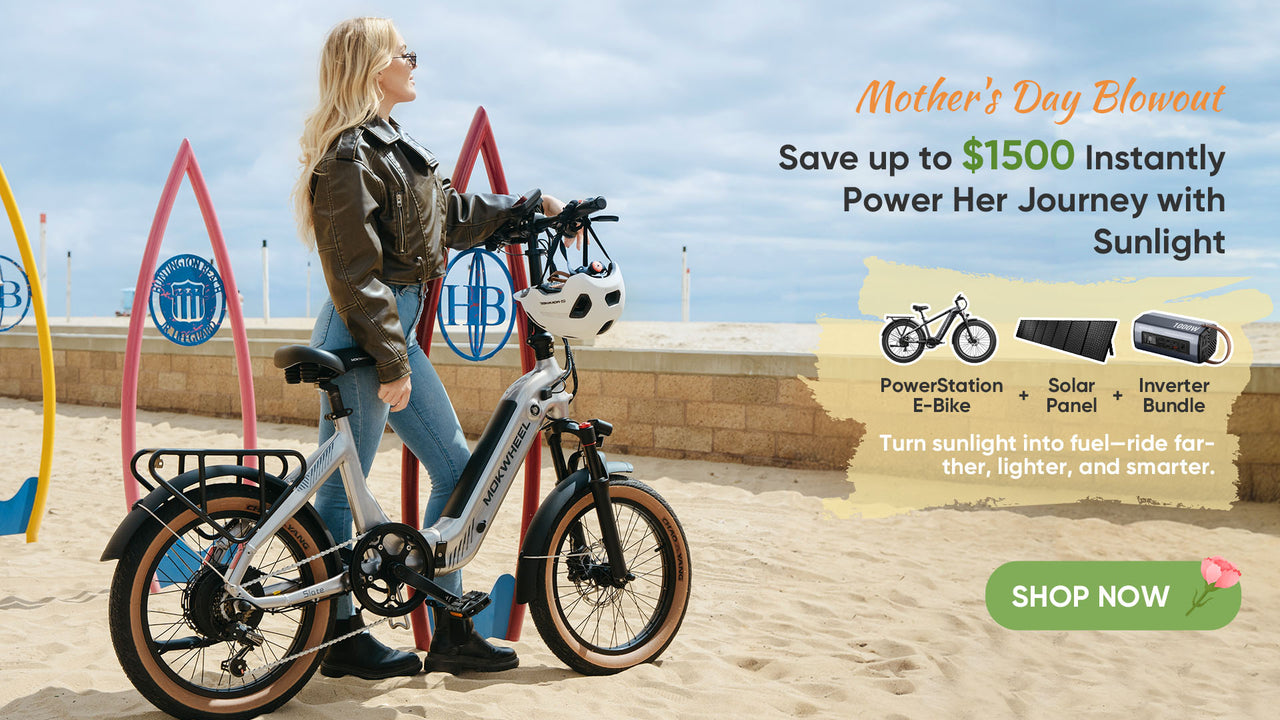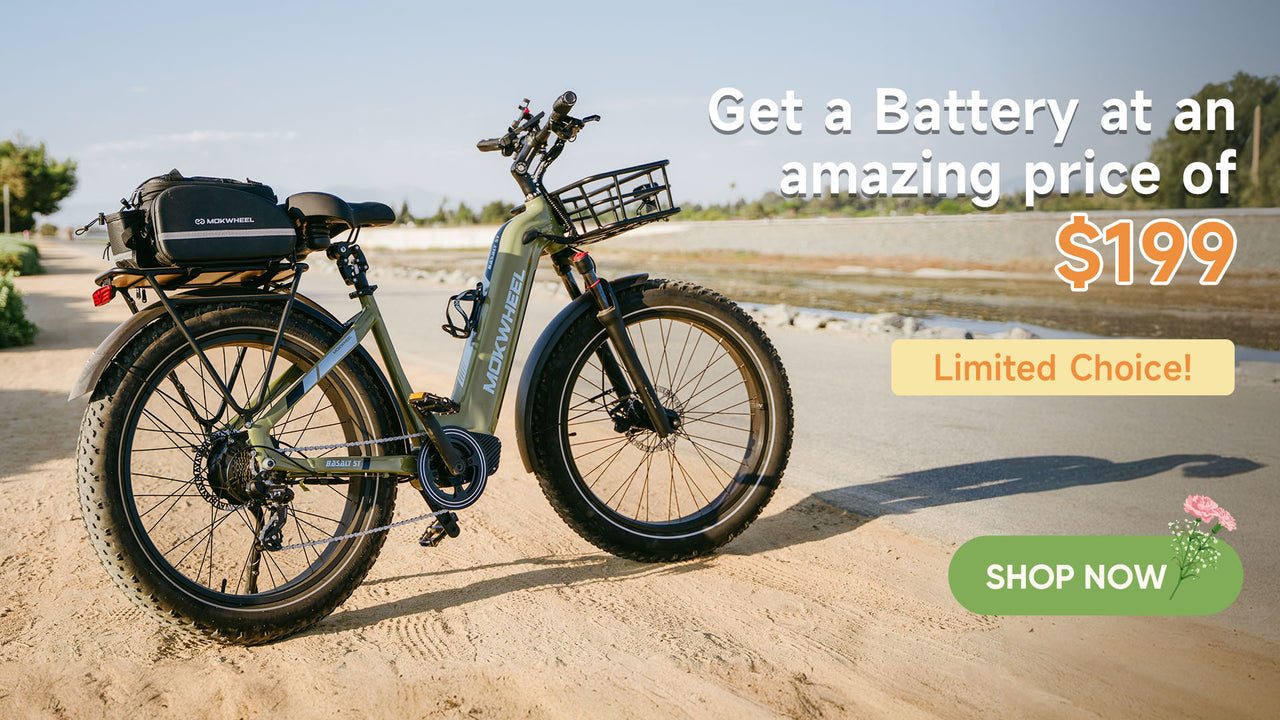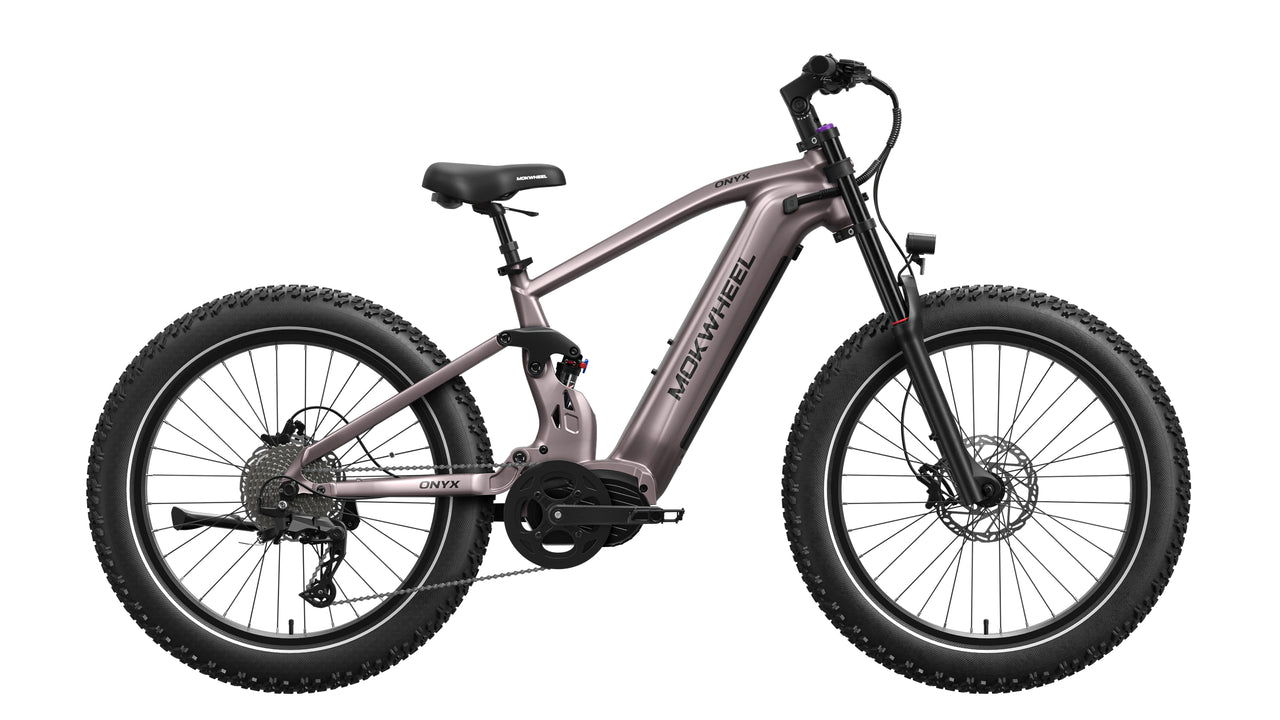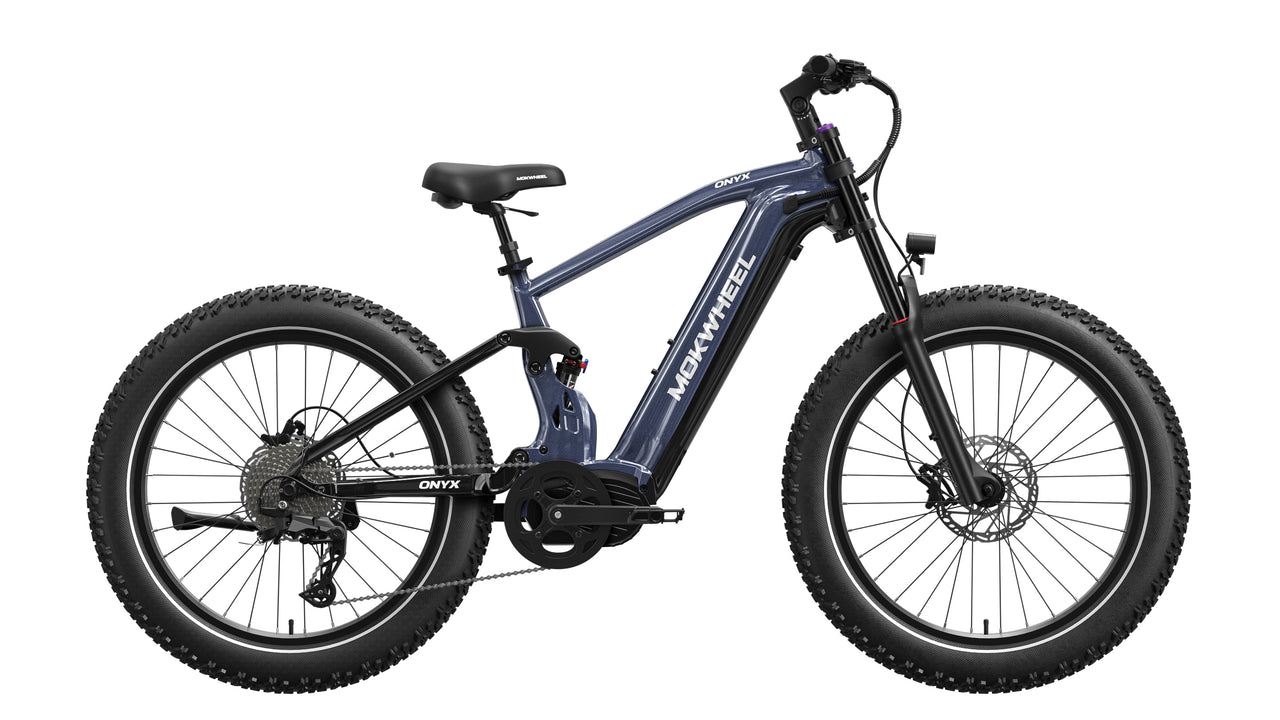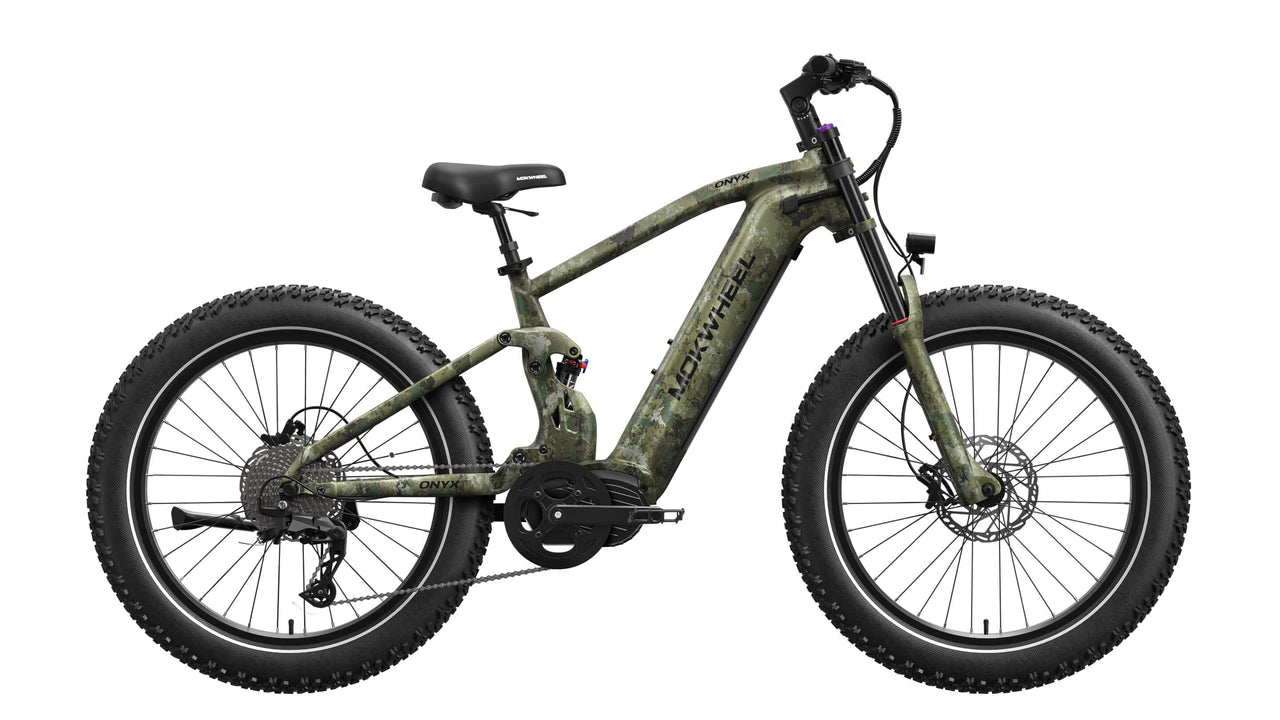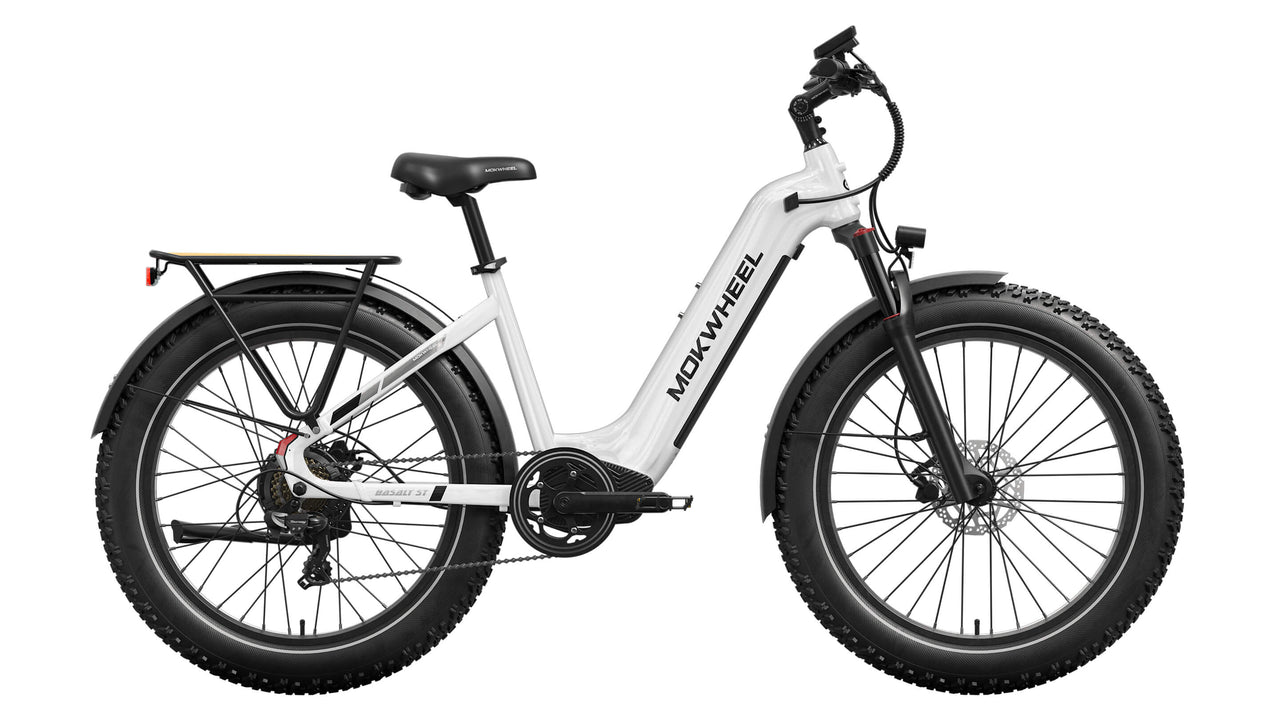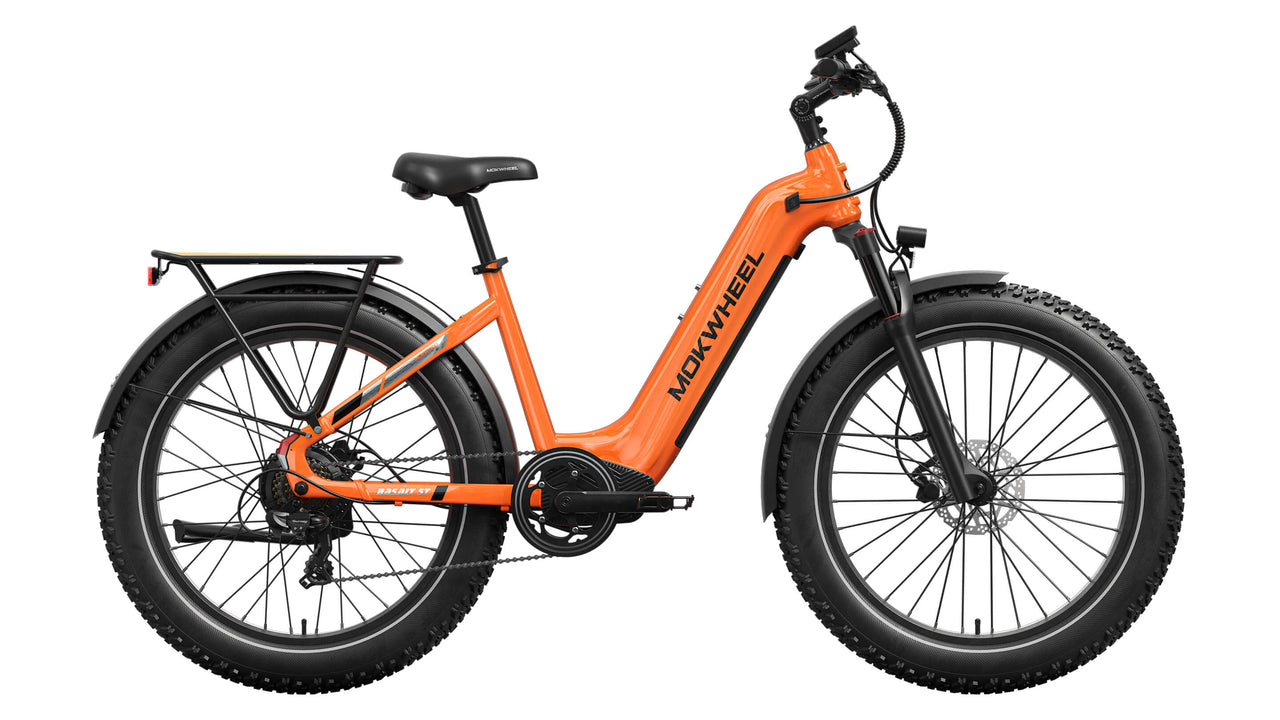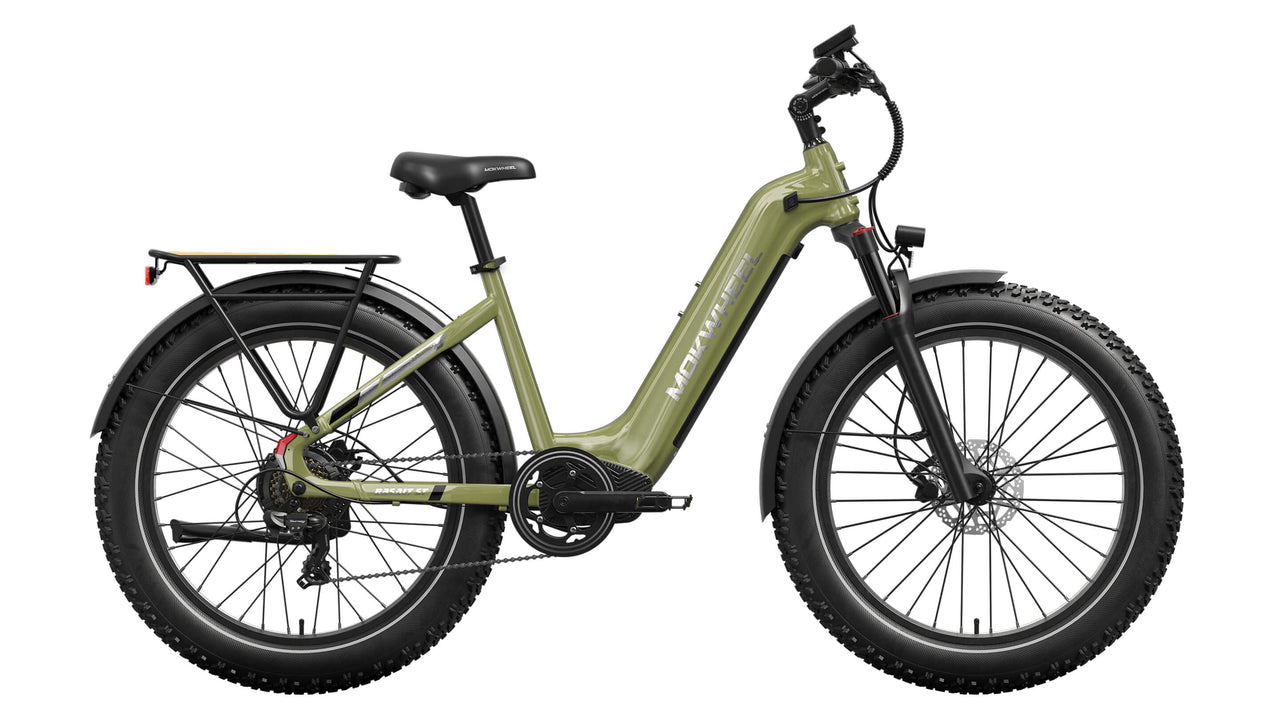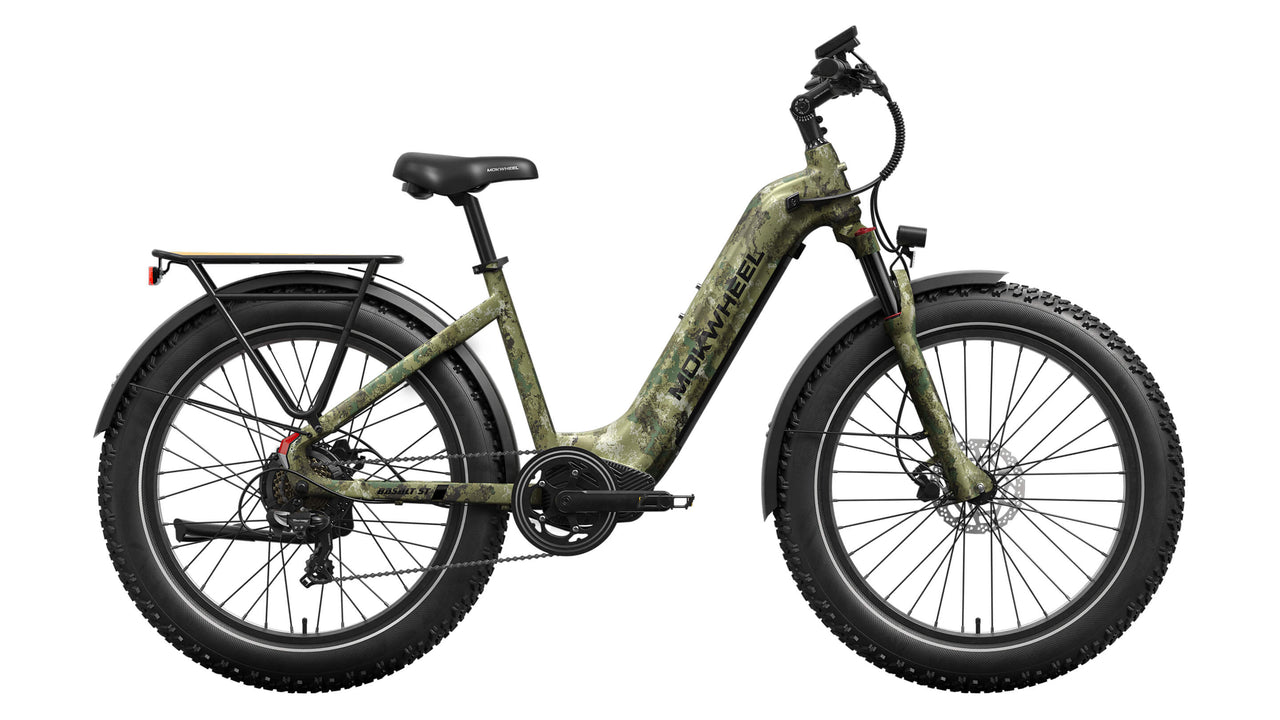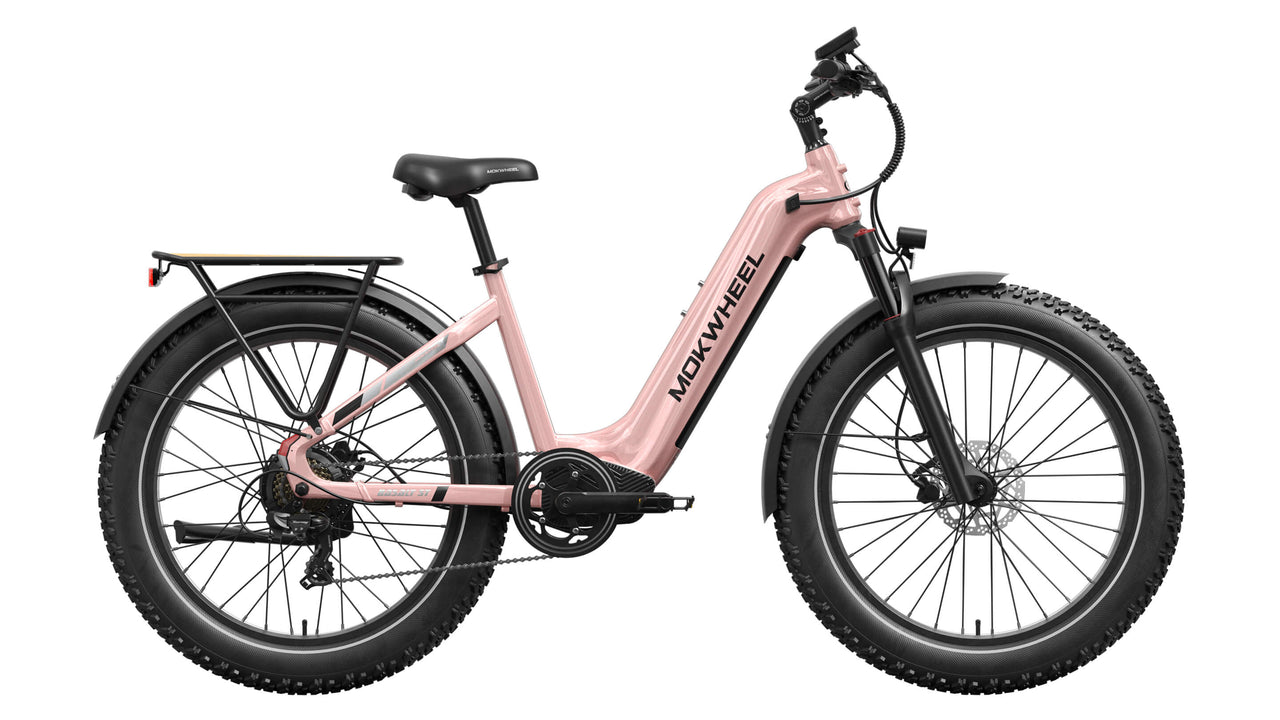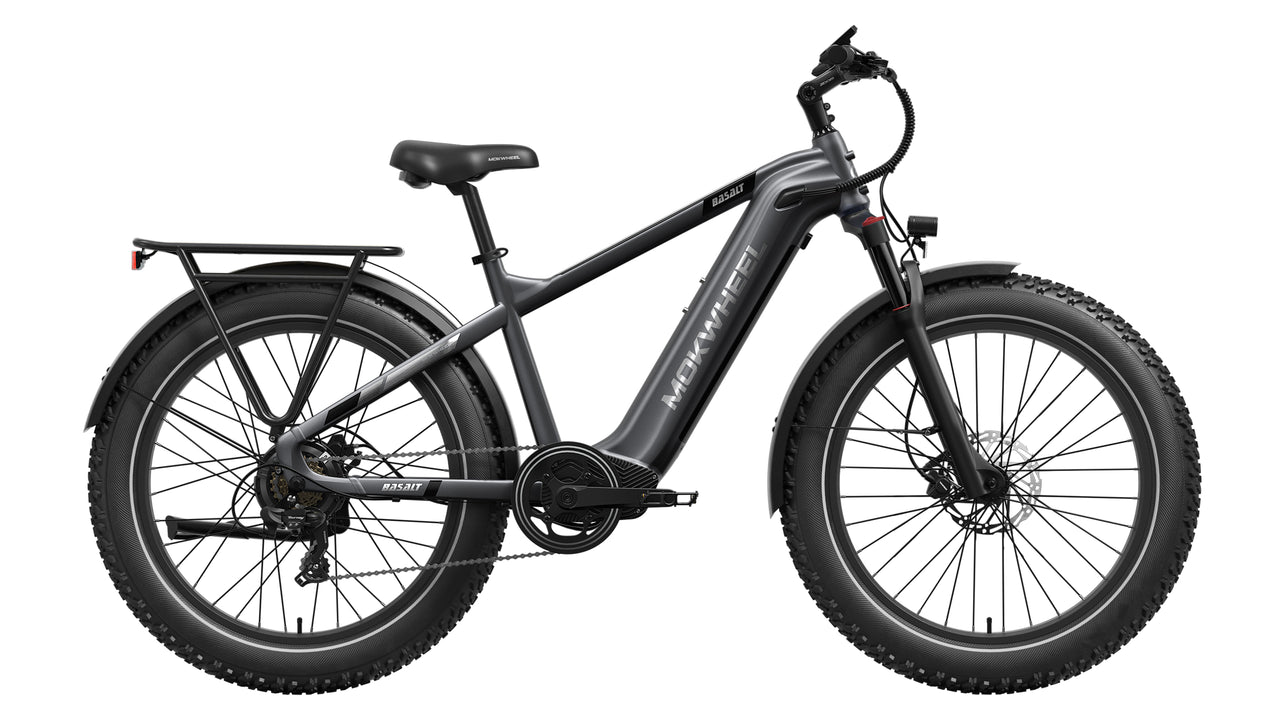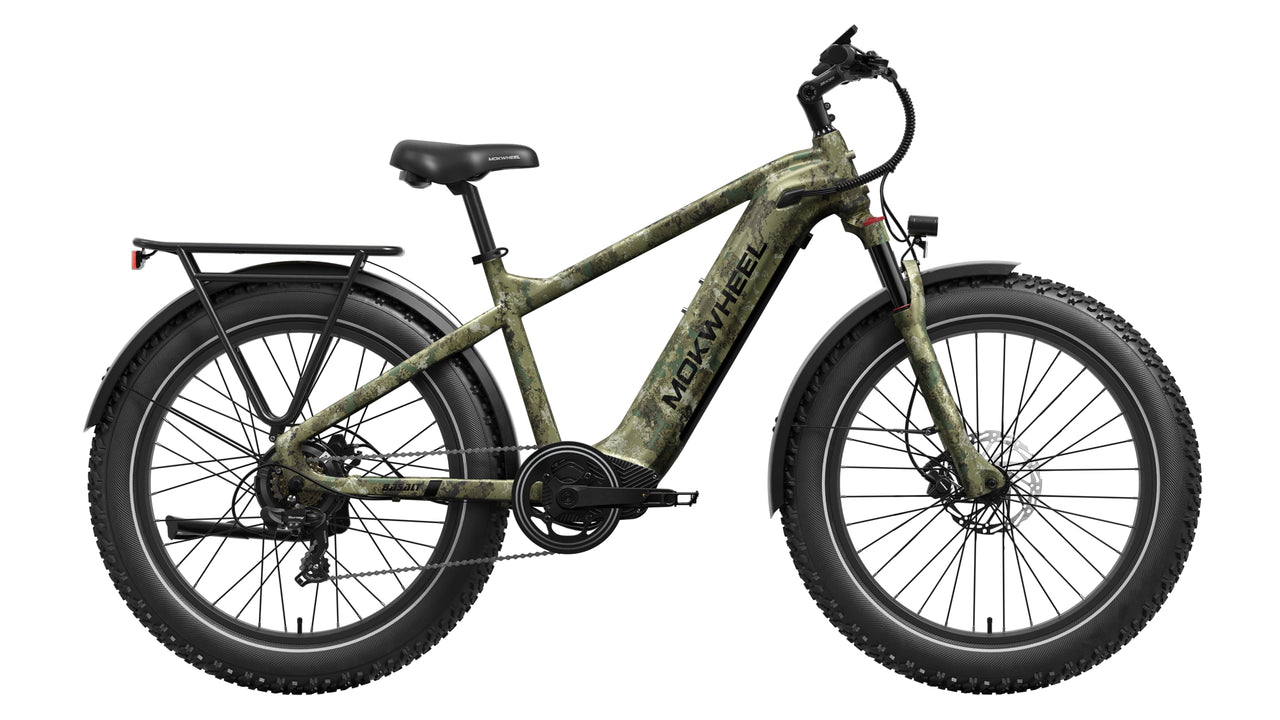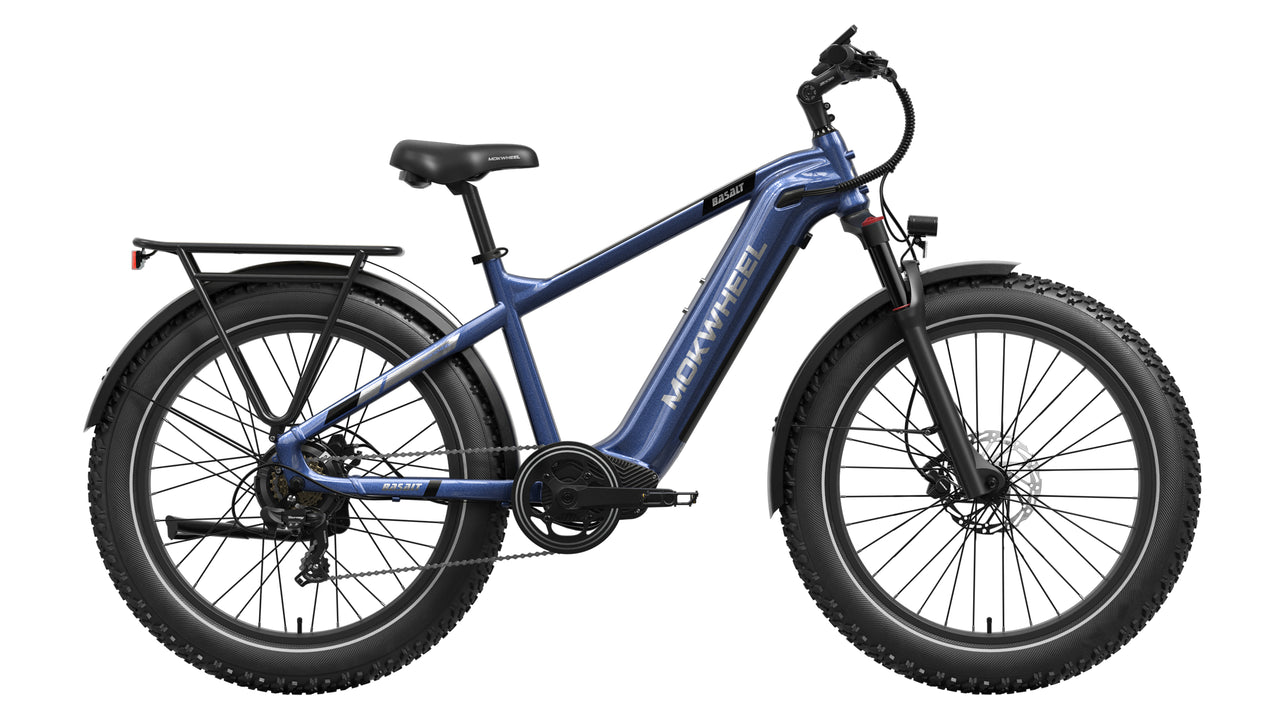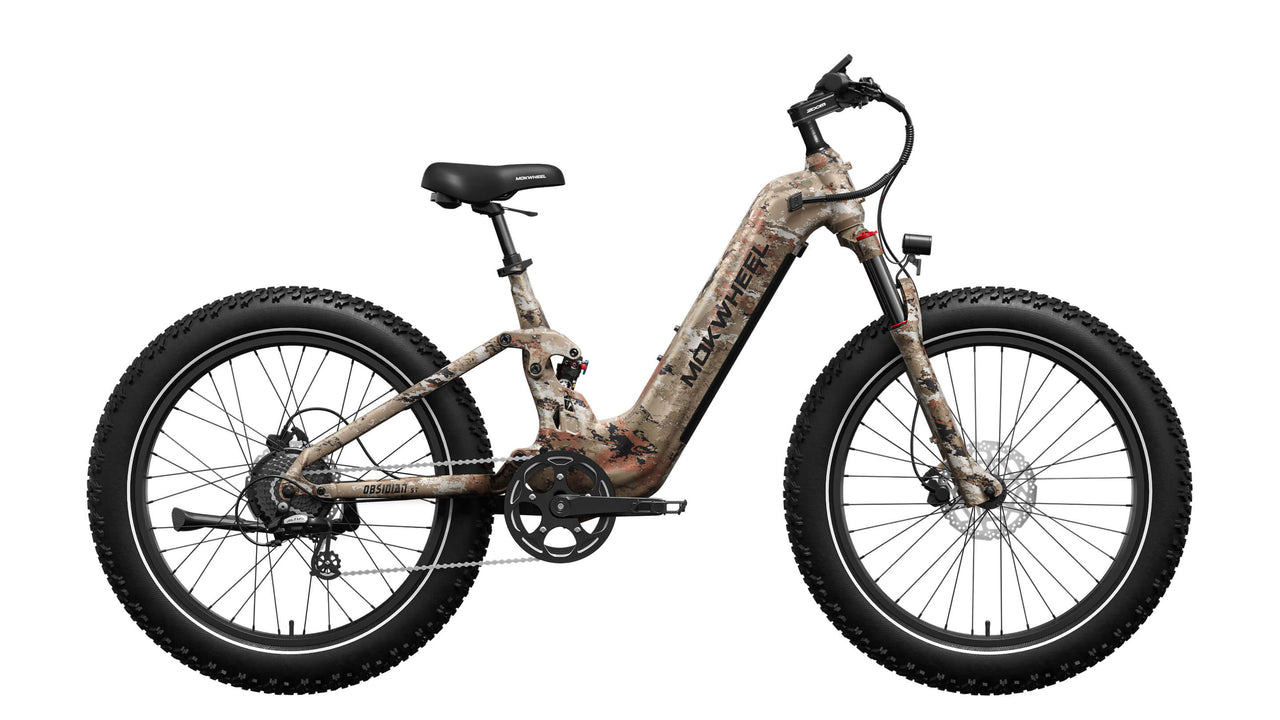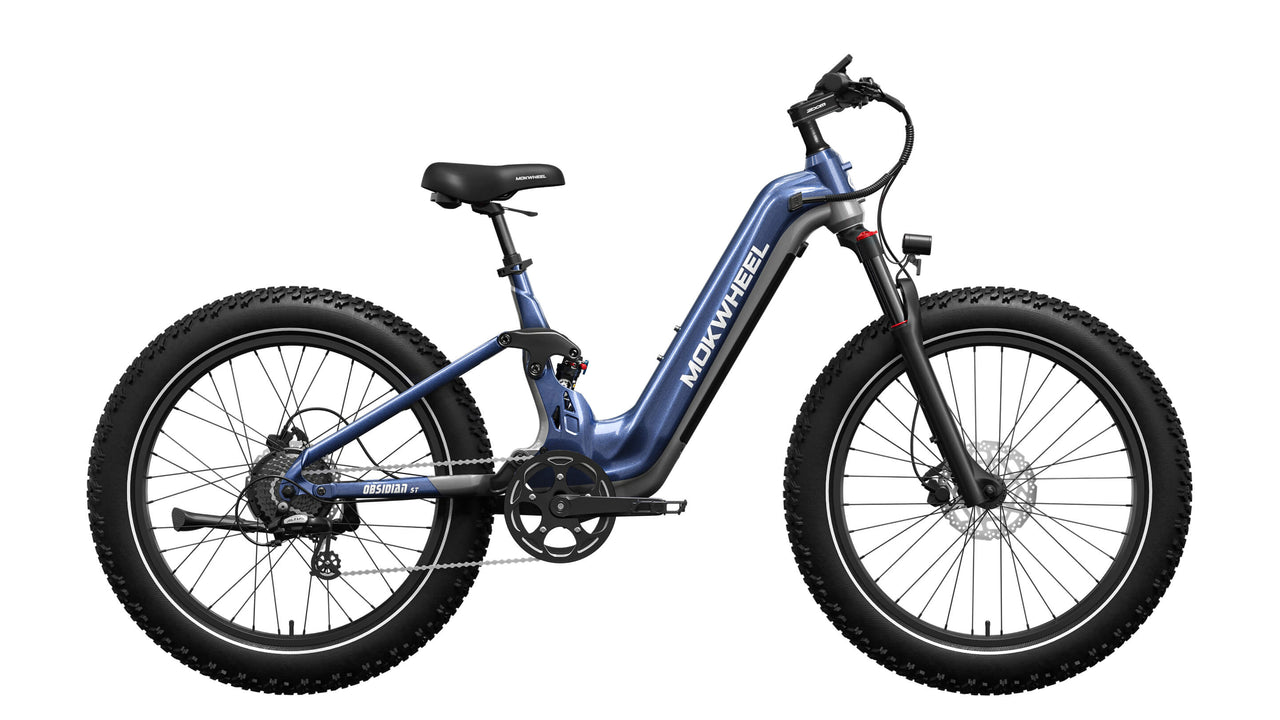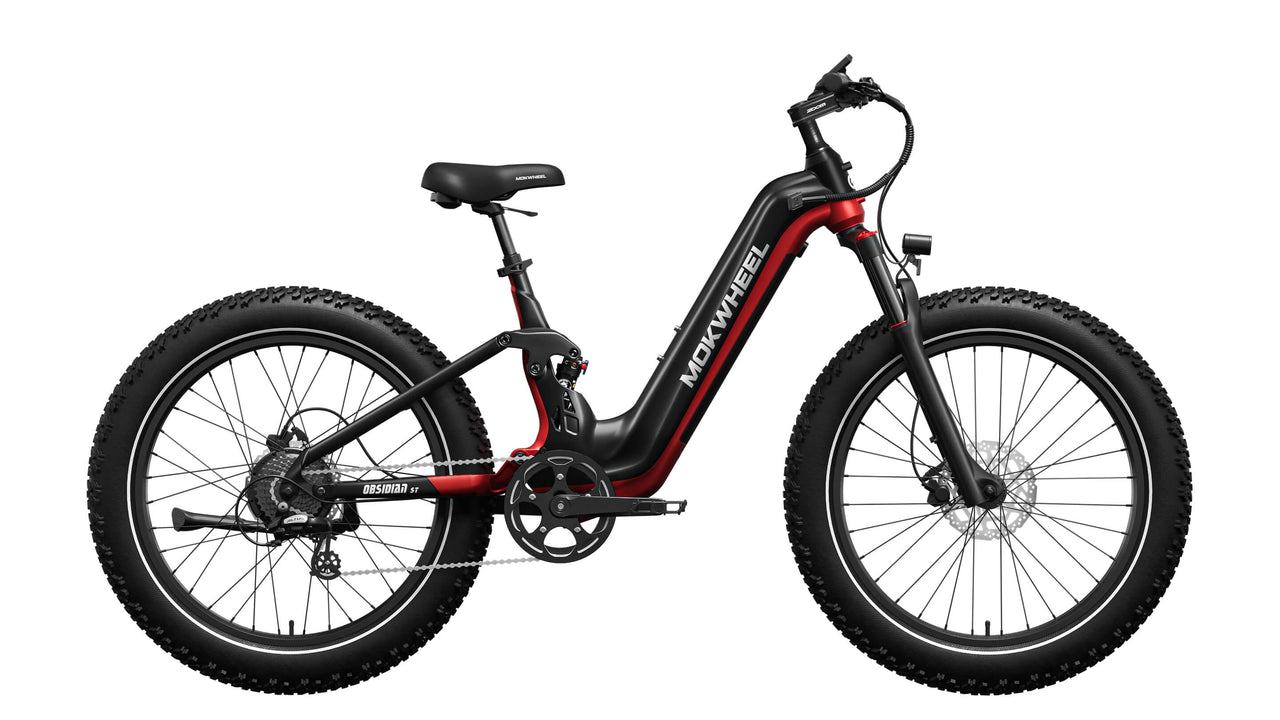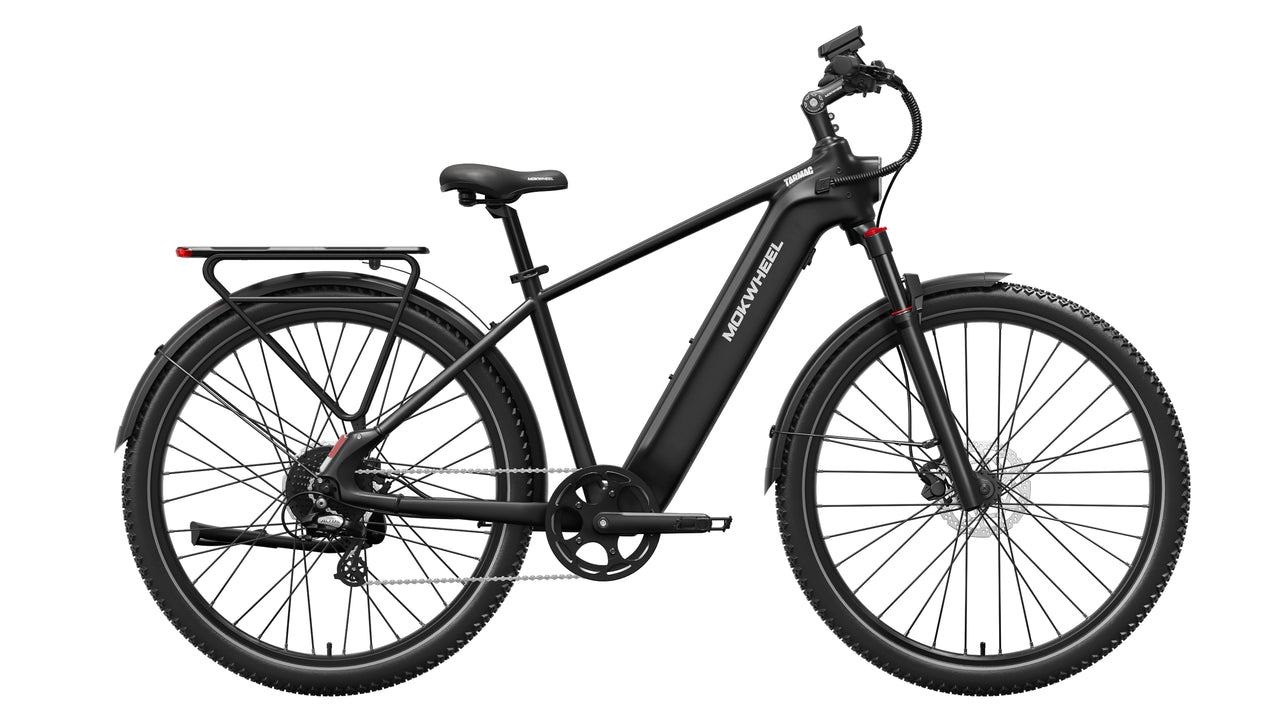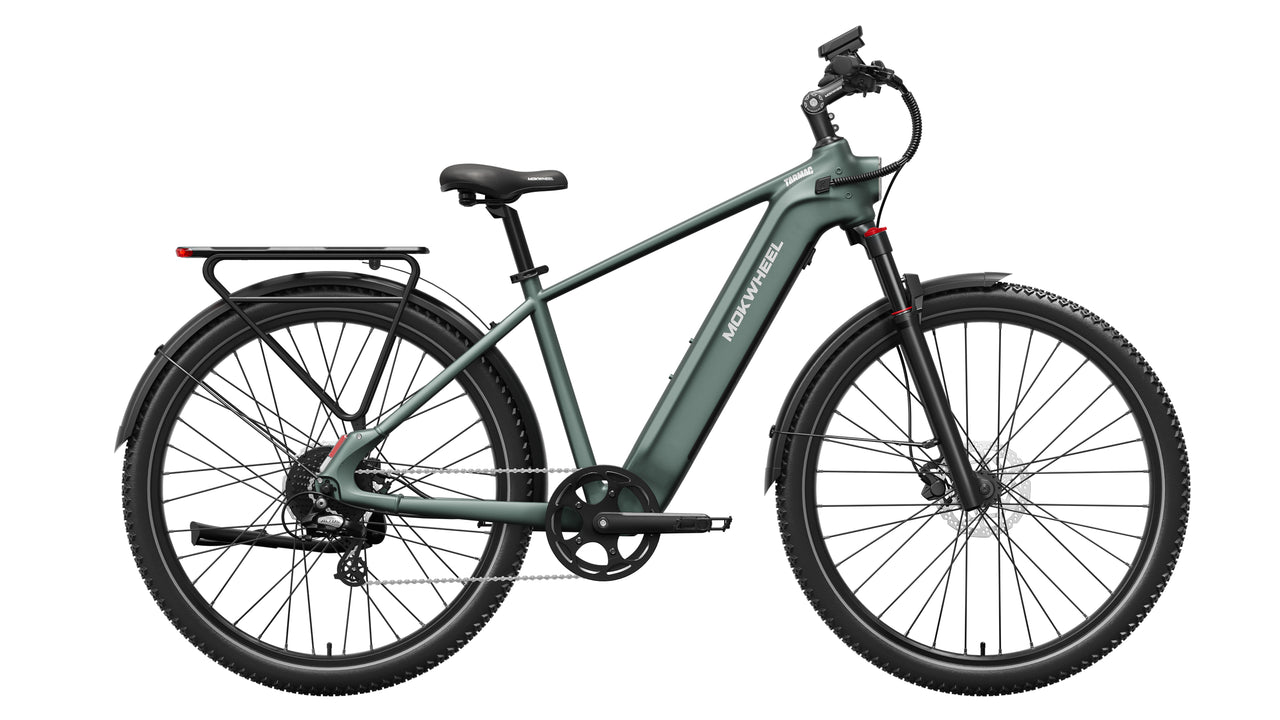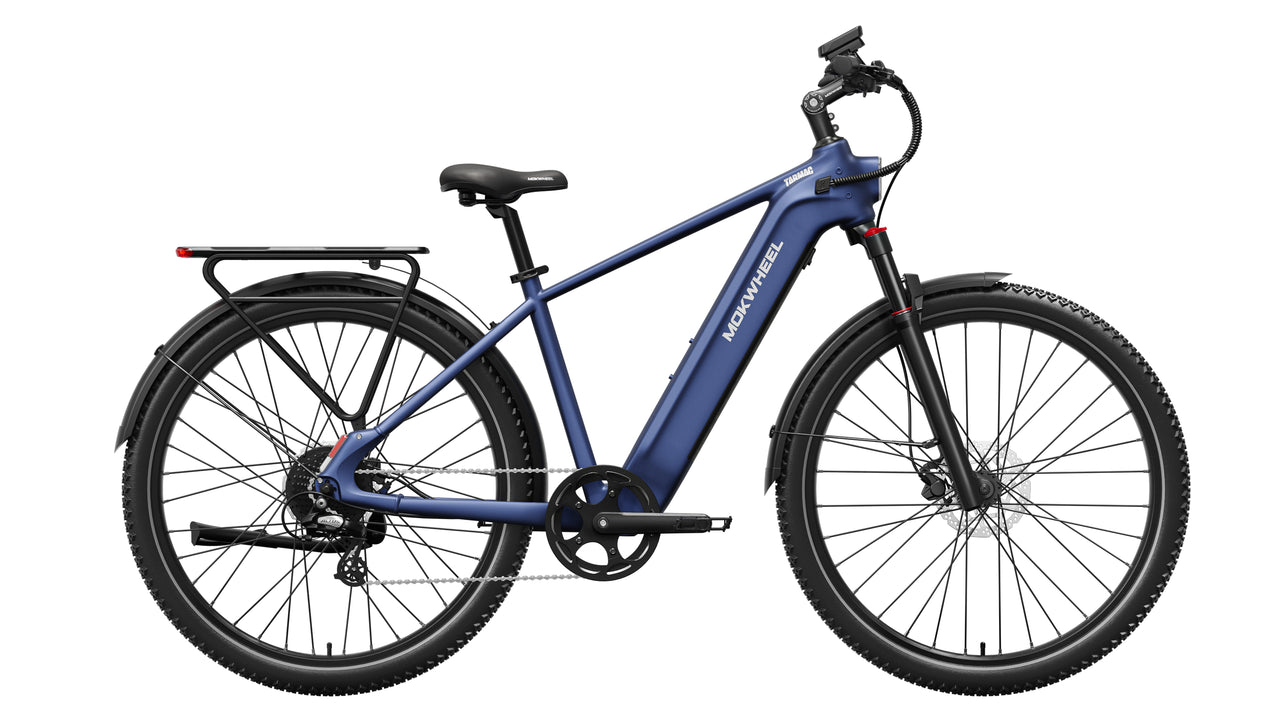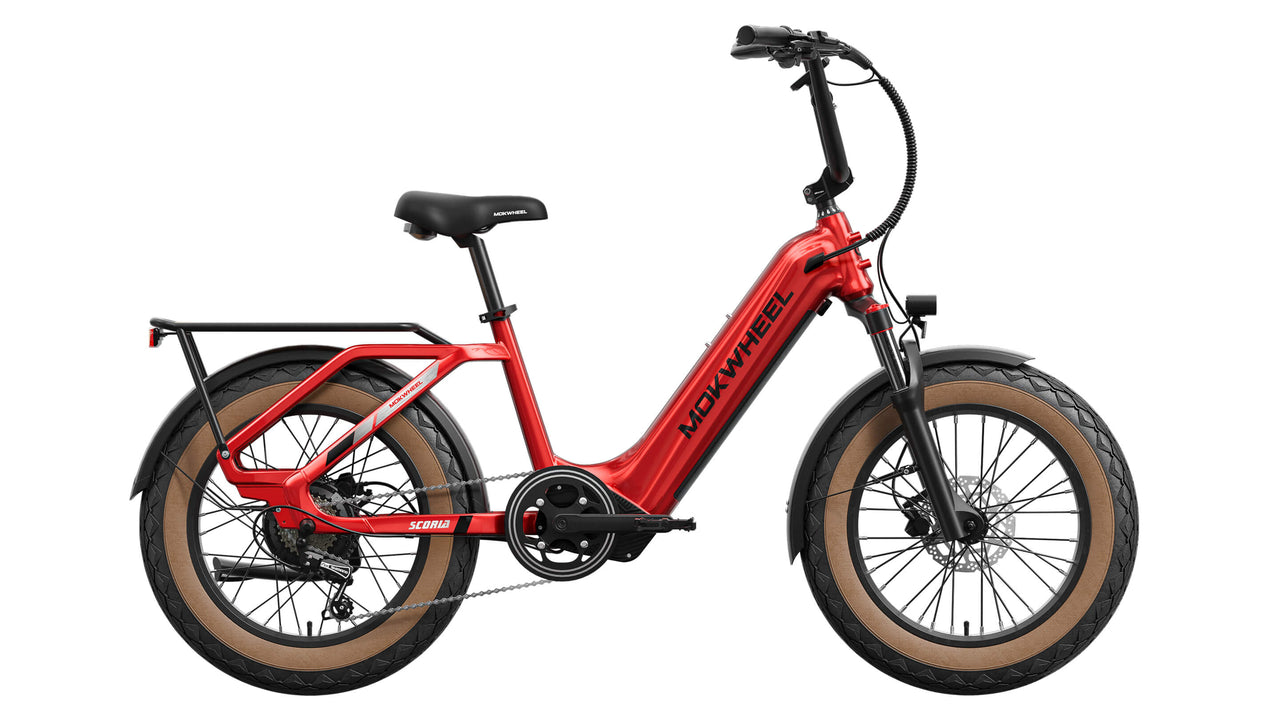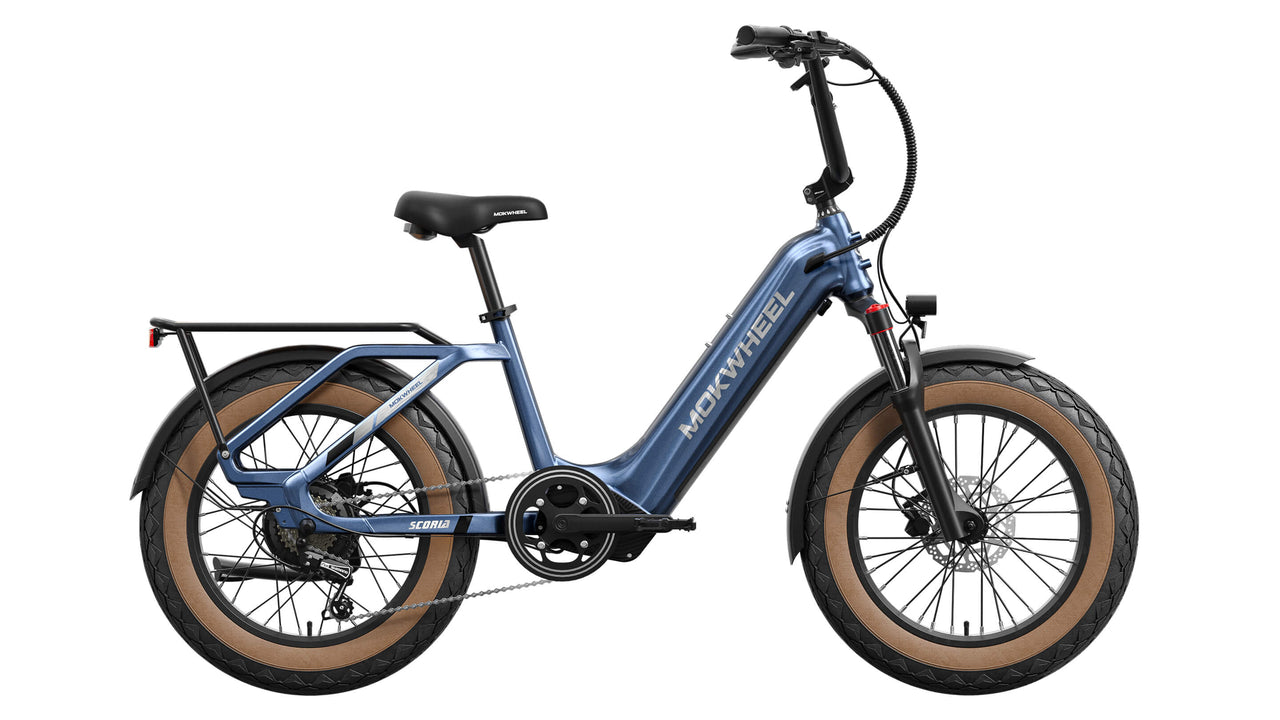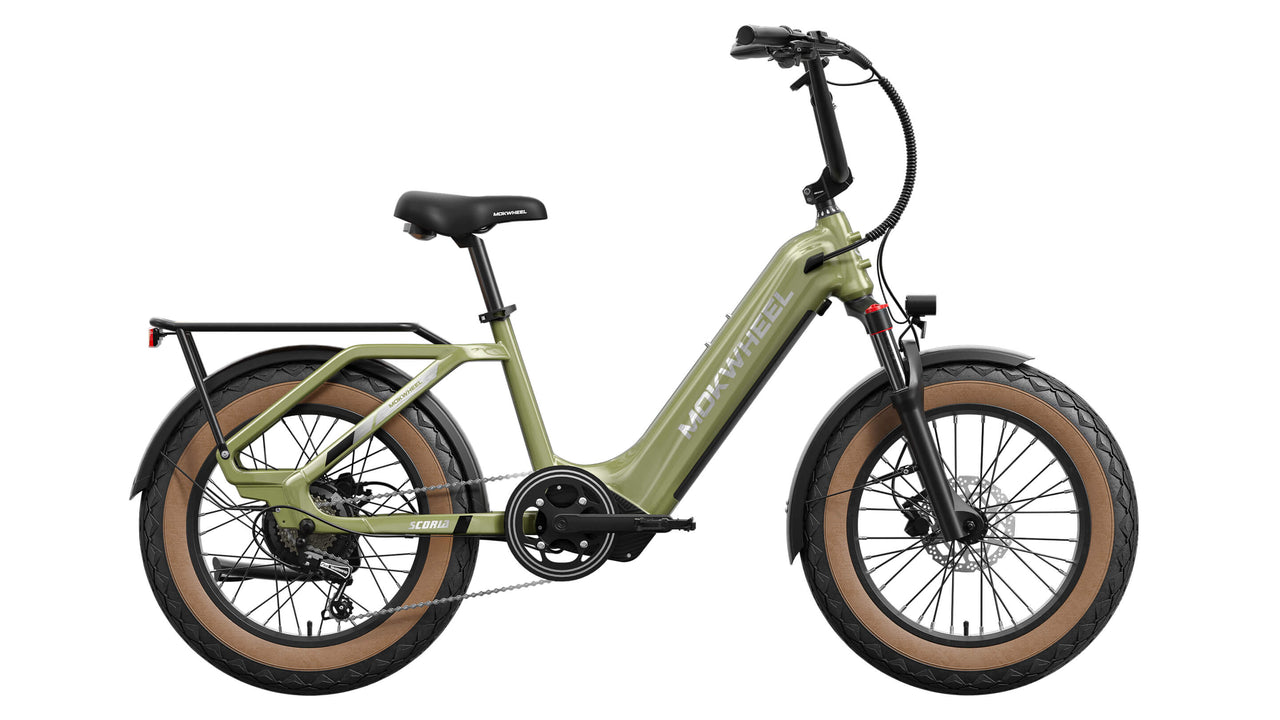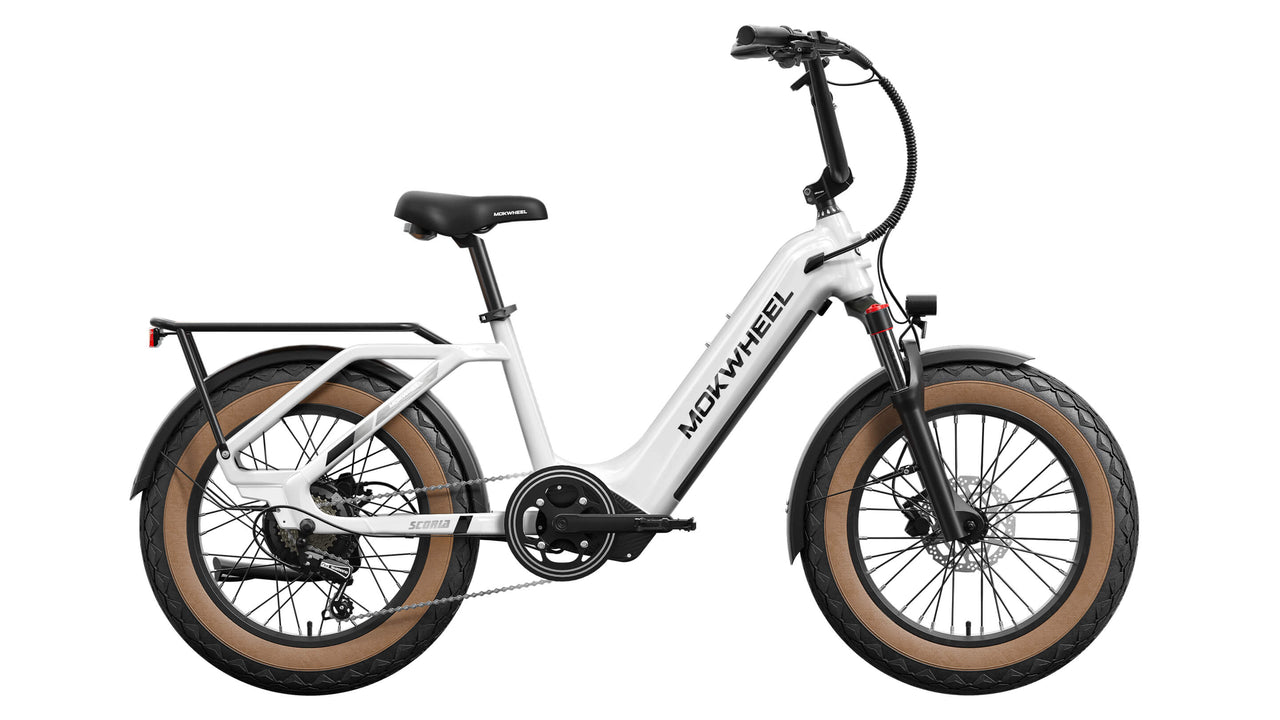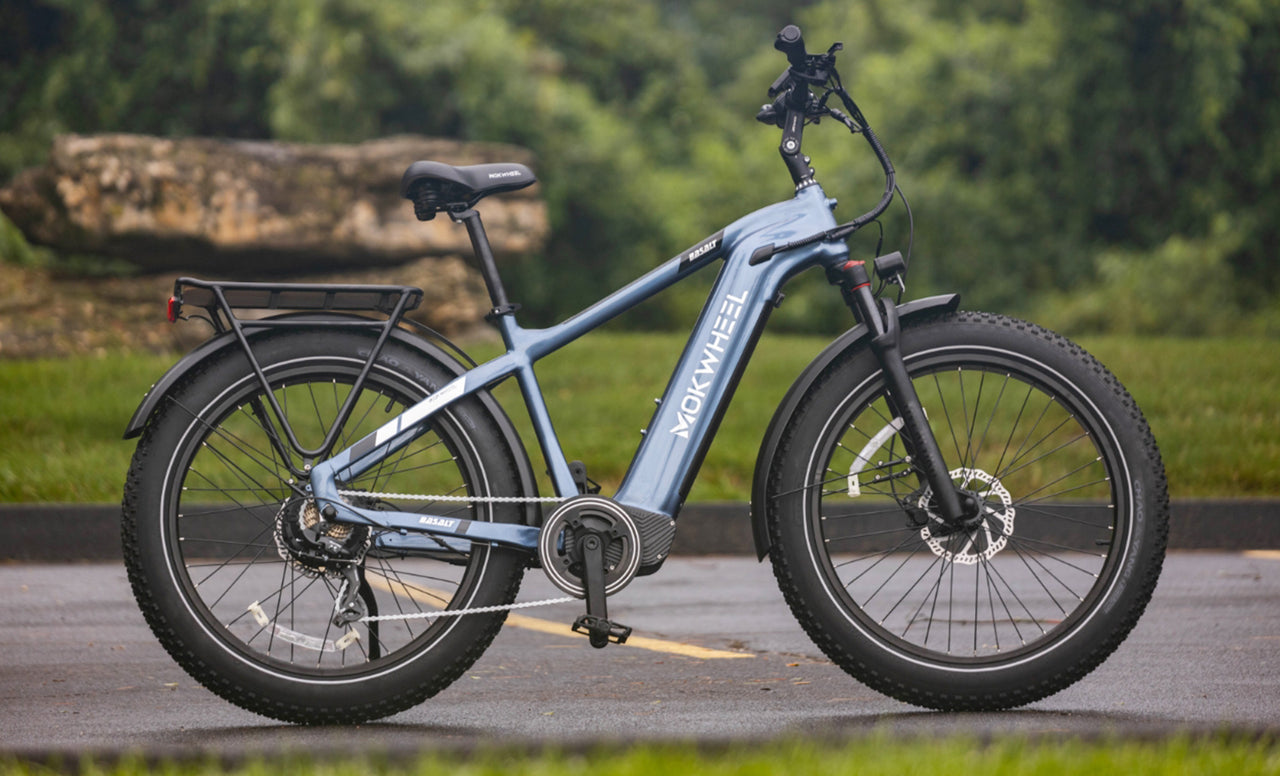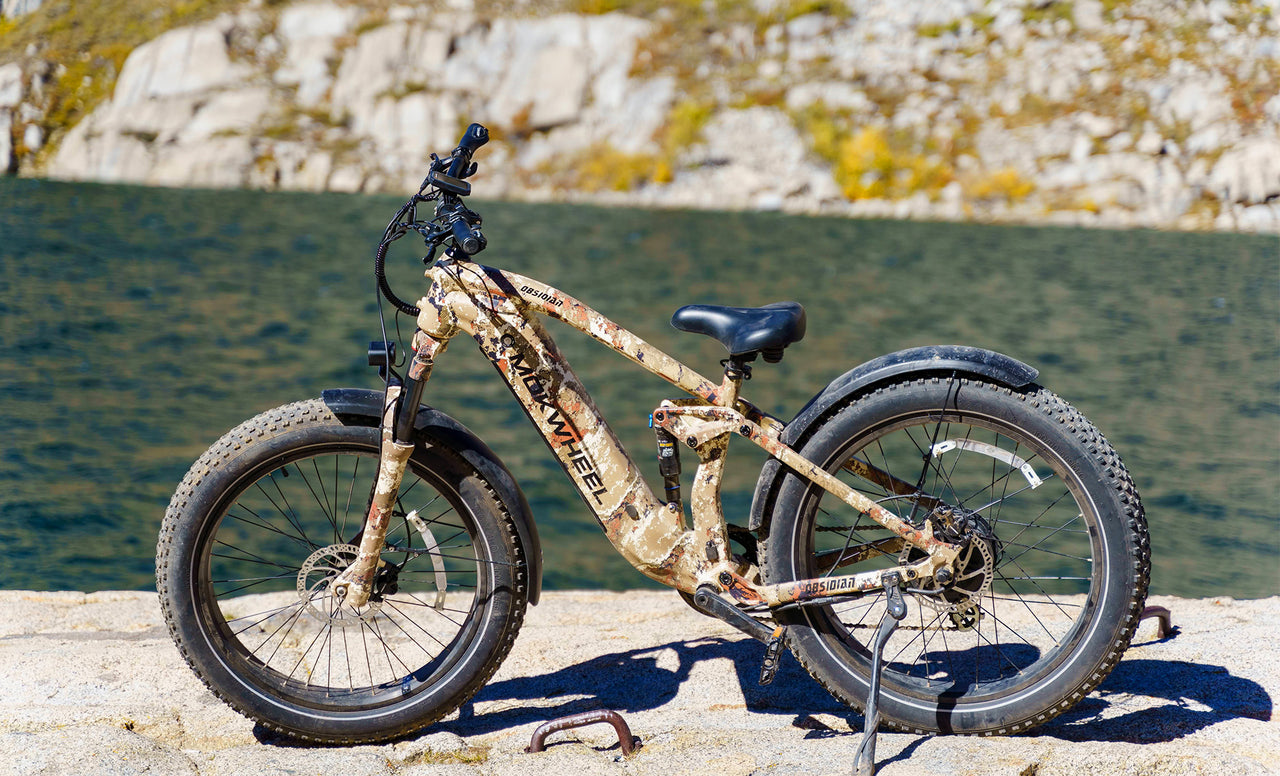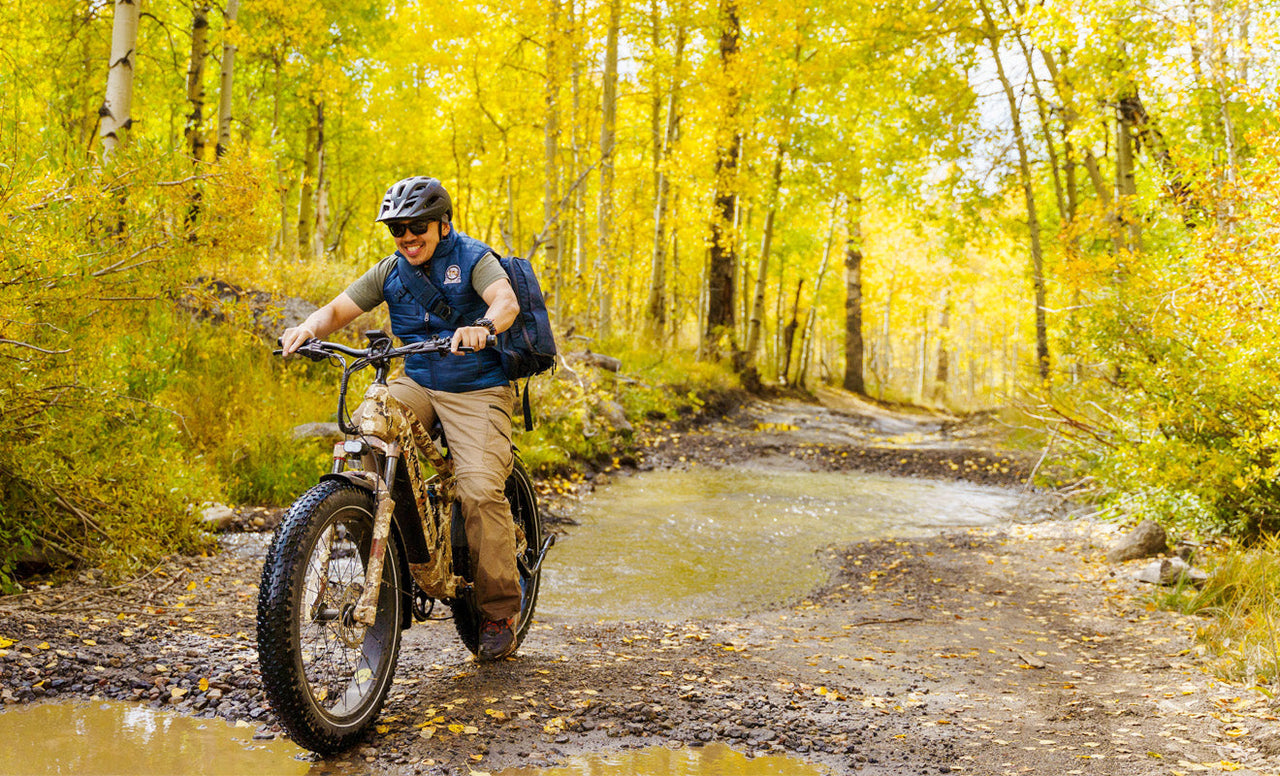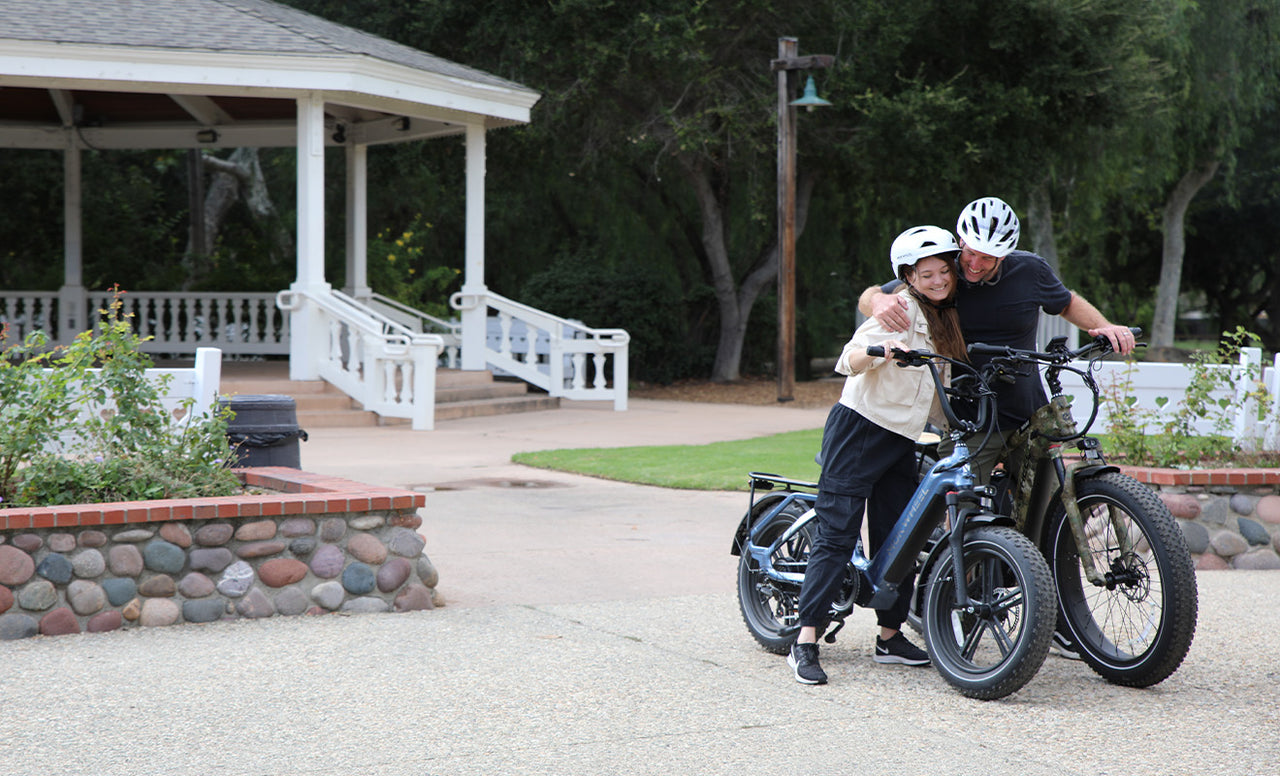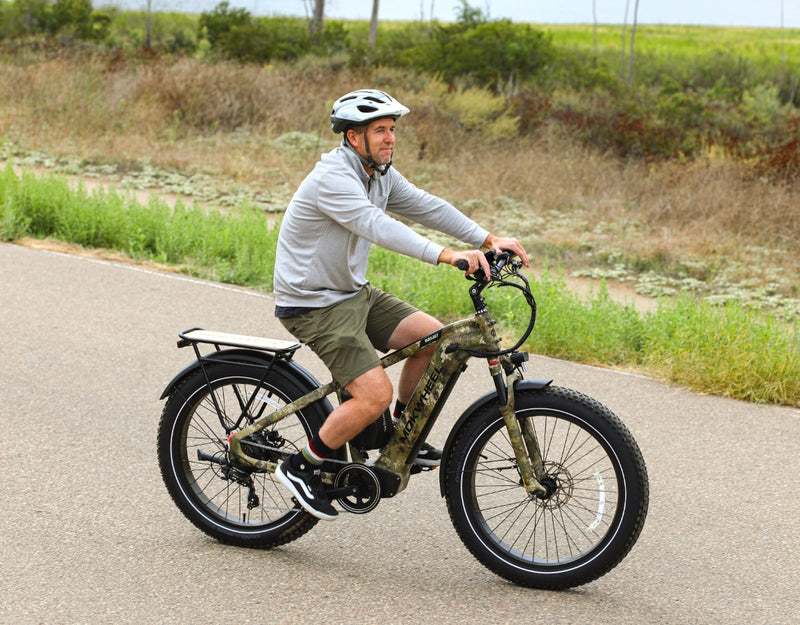When it comes to conquering diverse terrains with ease and style, all-terrain electric bikes stand out as the adventurers' choice. Among the plethora of options, the Mokwheel Obsidian and Basalt models shine brightly, offering a blend of power, versatility, and innovation that appeals to both seasoned riders and newcomers alike. In this comprehensive comparison, we delve into the features, performance, and value of these two exceptional models, guiding you to choose the perfect electric bike for your all-terrain adventures.
Why Choose an All-Terrain Electric Bike?
All-terrain electric bikes redefine the boundaries of exploration. Whether it's for adventure trails, hunting in the wild, or simply enjoying the versatility of off-road and urban commuting, these bikes are engineered to handle it all. With fat tires for stability, powerful motors for challenging terrains, and enhanced battery life for longer rides, the allure is undeniable. Let’s take a look at the specifications and performance parameters of the Mokwheel all-terrain electric bike:
Tech Specs: Mokwheel Obsidian/ Basalt
|
Features |
Mokwheel Obsidian |
Mokwheel Basalt |
|
Price |
$2,299 |
$1,699 |
|
Solar Charging |
Yes |
Yes |
|
Battery |
48V 19.6Ah |
48V 19.6Ah |
|
Motor |
1000W |
750W |
|
Weight |
77 lbs |
79 lbs |
|
Payload Capacity |
400 lbs |
400 lbs |
|
Range |
60-80 miles |
60-80 miles |
|
Brake |
Hydraulic Brakes |
Hydraulic disc |
|
Speed |
28 mph |
28 mph |
|
Sensor |
Torque |
Torque |
|
Display |
LED |
LED |
|
Tires |
26” x 4.0” |
26” x 4.0” |
|
Derailleur |
Shimano 8-speed |
Shimano 7-speed |
|
Suspension Fork |
130mm adjustable |
110mm adjustable |
Mokwheel Obsidian vs Basalt: Detailed Comparison
The Obsidian and Basalt models share many high-end features, including solar charging capabilities, impressive payload capacities, and hydraulic brakes. Yet, they cater to different preferences and budgets, which we'll delve into.
Price and Value
The Mokwheel Obsidian is priced at $2,299, while the Basalt comes in at a more accessible $1,699. This difference in price reflects the enhanced capabilities and features of the Obsidian, such as its more powerful motor. However, both bikes offer significant value for their price, considering their advanced features such as solar charging capabilities, robust batteries, and impressive payload capacities.

Power and Performance
At the heart of the Obsidian lies a formidable 1000W motor, outmuscling the Basalt's 750W motor, and enabling it to tackle steeper inclines and more challenging terrain with greater ease. Despite this difference, both bikes boast a top speed of 28 mph and are equipped with torque sensors for a more natural riding experience, ensuring they perform admirably across a variety of conditions.
Design and Durability
Interestingly, the Basalt is slightly heavier at 79 lbs compared to the Obsidian's 77 lbs, a negligible difference considering their robust construction and payload capacity of 400 lbs. This solid build quality ensures that both bikes can handle rough trails and heavy loads without compromising on performance.
Range and Efficiency
Both models offer an impressive range of 60-80 miles, thanks to their 48V 19.6Ah batteries. This extensive range, coupled with solar charging capabilities, means longer adventures with less worry about running out of power, making them ideal companions for off-grid explorations.
Comfort and Control
Riding comfort is paramount, especially on uneven terrain. The Obsidian and Basalt are equipped with hydraulic brakes for superior stopping power. Their LED displays provide clear, essential ride data at a glance. While both feature 26” x 4.0” tires for excellent traction and stability, the Obsidian edges ahead with its 130 mm adjustable suspension fork, compared to the Basalt's 110mm, offering a smoother ride over bumps and obstacles.
Gear and Customization
The Obsidian boasts an 8-speed Shimano rear derailleur, providing a wider range of gears than the Basalt's 7-speed Shimano setup. This additional gear enhances the Obsidian’s versatility, allowing for a more customized riding experience whether you're climbing steep hills or cruising on flat terrains.
More All Terrain Electric Bikes Comparisons:
- Mokwheel Basalt VS Aventon Adventure.2
- Mokwheel Obsidian vs. Himiway Cobra vs. Cyrusher Ranger
- Mokwheel Basalt ST vs Radrunner Plus vs Himiway Zebra
Choosing the Best Electric All Terrain Bike for You
In the evolving landscape of electric bikes (e-bikes), the allure of all-terrain options is undeniable. These robust machines blend the thrill of exploration with the practicality of sustainable transport. If you're on the hunt for an electric all-terrain bike that can navigate through various terrains—from sandy beaches to rocky trails—the Mokwheel Obsidian and Mokwheel Basalt models offer compelling features. But how do you decide which one is right for you? Let's delve into some guidance on selecting between the Obsidian and Basalt based on individual needs, and highlight what to look for in an all-terrain fat tire electric bike.
Understanding Your Needs
Type of Terrain: Both the Obsidian and Basalt are designed for versatility across terrains, thanks to their 26” x 4.0” fat tires. However, the Obsidian's 1000W motor provides more power than the Basalt's 750W, making it better suited for more challenging terrains or steeper inclines where extra torque can make a significant difference.
Usage: If your adventures include hunting, general exploration, or mountain biking where carrying capacity and power are crucial, the Obsidian with its higher motor power and similar payload capacity may be preferable. Its 130 mm adjustable suspension fork, compared to the Basalt's 110mm, offers enhanced shock absorption for rough trails. For more casual exploration or commuting on mixed terrains, the Basalt provides a more cost-effective solution without sacrificing core features like solar charging and a generous battery range.
Initial Investment vs. Long-Term Value: The Obsidian is priced higher than the Basalt. When considering your budget, weigh the initial investment against the long-term value. The Obsidian’s higher power motor and enhanced suspension could offer better performance and durability for intense use cases, potentially saving money on maintenance and upgrades.

Key Features to Consider in an All-Terrain Fat Tire Electric Bike
Solar Charging Capability: Mokwheel Obsidian and Basalt models boast an innovative solar charging capability, setting a new standard in the realm of electric biking. With solar charging, the Obsidian and Basalt extend their utility beyond traditional boundaries, offering riders the freedom to explore remote terrains without worrying about battery life.
Power and Performance: Assess the motor's wattage based on your terrain needs. A more powerful motor (like the Obsidian's 1000W) is essential for steep or challenging terrains, while a 750W motor (like the Basalt's) suffices for moderate terrains and general commuting.
Battery Life and Range: Look for a bike with a substantial range per charge if you plan long rides. Both models offer a 60-80 mile range, which is excellent for extended adventures without frequent recharging.
Suspension System: A robust suspension system, like the 130 mm adjustable fork on the Obsidian or the 110mm on the Basalt, is crucial for absorbing shocks and ensuring a comfortable ride across uneven terrains.
Weight and Payload Capacity: Consider the bike's weight and its payload capacity. Despite the Obsidian being slightly lighter than the Basalt, both support a substantial 400 lbs, catering to various riders and cargo needs.
Safety Features: Hydraulic brakes, present in both models, offer superior stopping power for all-terrain biking. Ensure your choice has reliable safety features for secure rides under different conditions.
Additional Features: Both bikes come with solar charging, torque sensors for efficient power use, LED displays for easy monitoring of bike stats, and quality derailleurs for smooth shifting. These conveniences enhance the riding experience and maintenance.
In conclusion, selecting the right electric all-terrain bike boils down to how you plan to use it, the terrains you'll tackle, and your budget. Both the Mokwheel Obsidian and Basalt offer exceptional features tailored to all-terrain biking, but your specific needs will dictate the best fit. Consider the power, performance, comfort, and safety features against your requirements to make an informed choice that will enrich your adventures.
Conclusion
Choosing between the Mokwheel Obsidian and Basalt ultimately comes down to your specific needs and preferences. The Obsidian, with its more powerful motor, additional gear, and longer suspension, is tailored for those seeking the utmost in performance and comfort on the most challenging terrains. Its higher price tag is justified by these enhanced features and capabilities. On the other hand, the Basalt offers exceptional value, maintaining a balance between performance and price, making it an ideal choice for riders looking for a reliable all-terrain electric bike without breaking the bank.
Whether you opt for the raw power and advanced features of the Obsidian or the impressive value and performance of the Basalt, both Mokwheel models stand as testaments to the exciting potential of all-terrain electric biking. Explore the Mokwheel Unbeatable Deals, redefining your biking experience.





